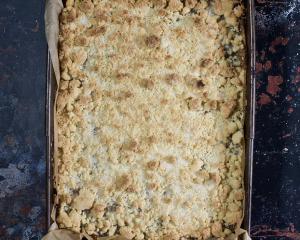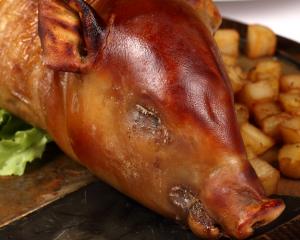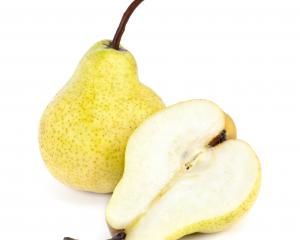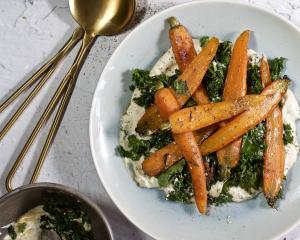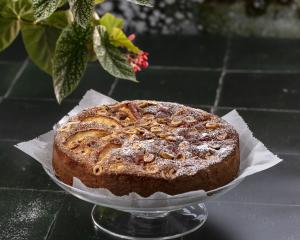Pilaf with mint and parsley, baked tomatoes with basil cream — make the most of homegrown flavours, writes Nigel Slater.
A few steps from the kitchen door is a low wooden table creaking with pots of herbs. Knocked together from a packing crate and an old door, now weathered and green with moss, it is home to almost all of my kitchen herbs, including thyme and tarragon, several varieties of mints and a lemon verbena. There are two or three clumps of chives, green and golden marjoram (beautiful, but tasting pretty much identical), others of basil and rosemary, and several rose- and lemon-scented pelargoniums.
The herb table came about simply because I ran out of space on the kitchen steps. What started as the odd homegrown thyme bush soon became quite a collection, although I will admit to losing as many as I have safely nurtured, probably more.
I grow herbs in pots because the soil in the garden is too heavy and rich for most varieties to thrive. Most herbs prefer a thin, well-drained soil — where mine is as rich and claggy as sachertorte. Pots, mostly terracotta — a few made from coir — have turned out to be a better home for them, where I can mix their peat-free compost with plenty of grit for drainage, so their roots don’t sit in the wet, which most herbs hate.
As the summer lingers, I let them flower — those of the chives and rosemary are particularly enchanting.
Overwintering herbs in my garden is a bit hit and miss. The thymes tend to come back every year, although in my experience rarely stronger than the initial year, and the oreganos and rosemary are pretty reliable too. However, I treat most of my kitchen herbs as annuals and, not having a greenhouse, replace them each spring. Dill and fennel do well in large pots, though grown apart in case they cross pollinate. (Good luck with overwintering basil plants.)
And I’ll tell you a little secret about homegrown herbs: even a single pot of thyme on the windowsill can bring a certain pleasure. You don’t even have to cook with it, just crush the leaves in your hands, cup them to your face and breath in deeply.
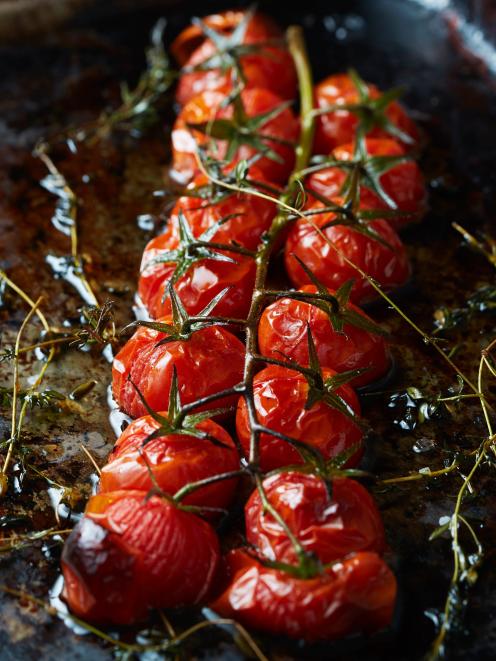 Photo: Getty Images
Baked tomatoes, basil bean cream
Photo: Getty Images
Baked tomatoes, basil bean cream

A bells and whistles version of tomatoes on toast here, but with good reason. As you slice into the baked tomatoes, their sweet-sour juices spill deliciously over the soft mound of herb-speckled bean puree — a taste of deep summer.
Makes 4 servings
12 small-medium tomatoes (500g)
6 thyme sprigs
3 Tbsp olive oil
4 slices of sourdough or ciabatta
For the bean puree
1×400g tin of haricot beans
5 Tbsp olive oil
20g basil
1 small clove garlic
Set the oven at 210degC.
Put the tomatoes snugly in a roasting tin, tuck in the thyme sprigs, then pour over the olive oil. Season with salt and black pepper, then bake for 20 minutes or until the tomatoes are soft and their skins are just starting to burst.
Drain the beans and bring them to the boil in a pan of fresh water. (I often add a few sprigs of thyme and a couple of bay leaves, but it is not essential.) Lower the heat to a simmer and leave for 10 minutes. Drain the beans, reserving a tablespoon of the cooking water. Put the beans into the bowl of a food processor, add a little salt and black pepper, the 5 tablespoons of olive oil and the basil leaves. Peel and add the clove of garlic, then process for a few seconds (only) to a thick, green cream.
Toast the bread on both sides. Spread the basil cream over it, then divide the tomatoes between the slices of toast, spooning over any thyme-scented juices from the pan.
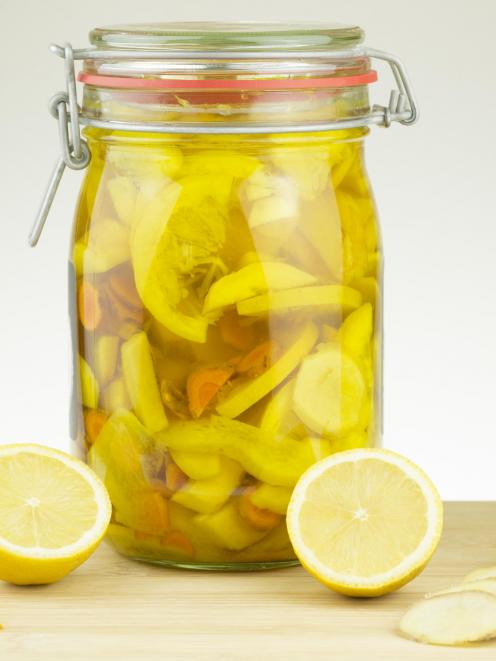 Photo: Getty Images
Summer pilaf with preserved lemon and salted ricotta
Photo: Getty Images
Summer pilaf with preserved lemon and salted ricotta

There is a certain ease to this pilaf, the grains of rice freckled with herbs and green summer vegetables. It is as good served at room temperature as it is when eaten straight from the pan. With seasonings of salty ricotta and sour preserved lemons, the rice has something of a spring it its step. I bring this to the table as it is, but it makes a fine side dish for cold salmon or slices of smoked fish too.
Serves 2-3
A couple of handfuls of broad beans, about 200g (shelled weight)
250g of asparagus
For the pilaf
120g white basmati rice
35g butter
3 bay leaves
6 green cardamom pods
6 black peppercorns
1 cinnamon stick
2 or 3 cloves
a pinch of cumin seeds
A couple of sprigs of thyme
To finish
8 large mint leaves
30g (total weight) of parsley and coriander
4 spring onions
45g preserved lemons
50g salted ricotta
Cook the beans in deep, lightly salted, boiling water for 3 or 4 minutes. Drain and pop the largest of the beans from their skins. Any very small beans can be left as they are. Trim the asparagus, removing any tough ends, then cut the spears into short lengths. Boil or steam for 5 or 6 minutes until just tender, then drain.
Wash the rice three times in a bowl of warm water. This will prevent it sticking together.
Melt the butter in a saucepan over a moderate heat, add the bay leaves, the cardamom pods lightly crushed to reveal their seeds, the peppercorns, cinnamon stick, cloves, cumin seeds and thyme.
Stir the spices and herbs around in the butter for a minute or two, then, as soon as they are warm and fragrant, drain the rice and add it to the pan.
Stir the rice to coat it with the butter, then pour in enough water to cover the grains by 2cm.
Season with ½ a teaspoon of salt, turn down the heat so the water simmers, then cover tightly with a lid. After 7 minutes fold in the drained asparagus and the broad beans. Replace the lid and cook for a further 5 minutes.
Remove from the heat, leave the lid in place and set aside for 3 minutes.
To finish, put the mint leaves on top of one another, roll tightly, then shred finely. Remove the parsley and coriander leaves from their stems and finely chop. Finely slice the spring onions, discarding the dark shoots. Halve the lemons, discard the flesh inside and finely dice the skins.
Stir the herbs, diced lemons and spring onions into the rice and transfer to a serving dish. Crumble the salted ricotta finely and scatter over the rice.
— Guardian News and Media


